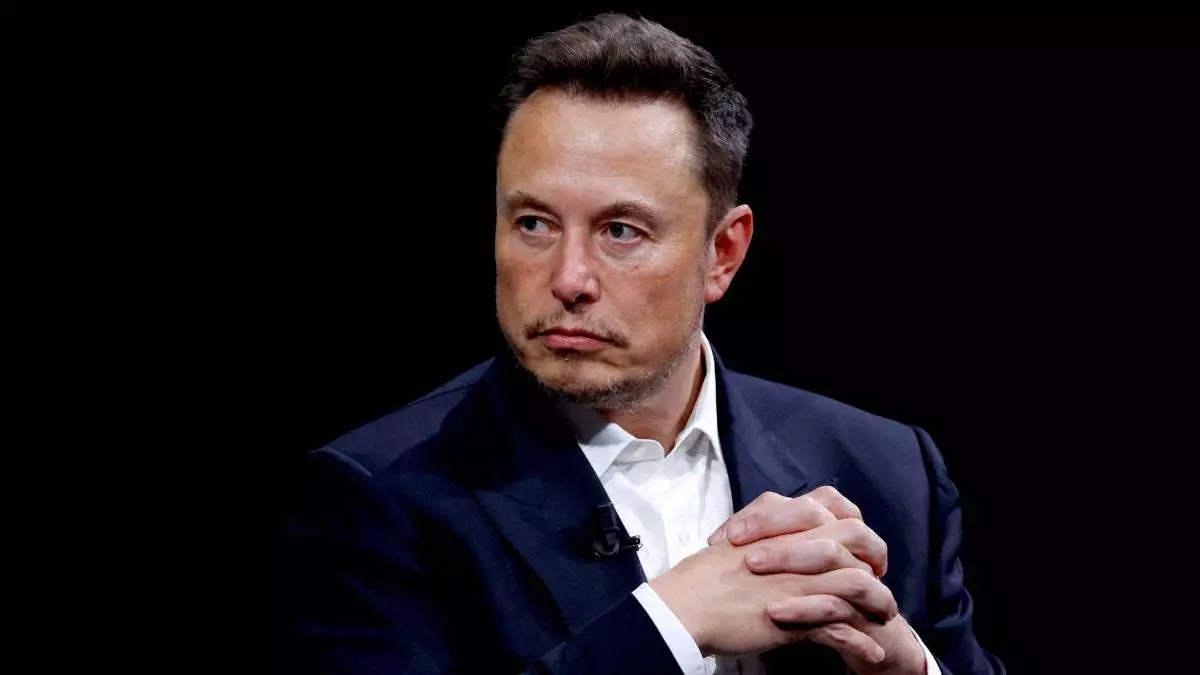The ongoing turbulence between Elon Musk and the U.S. Securities and Exchange Commission (SEC) has reached a fever pitch. With the SEC seeking sanctions against Musk for allegedly disregarding a court-ordered testimony concerning his controversial $44 billion acquisition of Twitter, the situation presents important insights into corporate governance, regulatory compliance, and executive accountability. The unfolding events not only spotlight Musk’s influence over prominent tech enterprises (including Tesla and SpaceX) but also underscore the complexities and challenges of regulatory oversight in the fast-paced world of tech moguls.
On September 10, 2023, Musk failed to appear for what was a court-mandated testimony in San Francisco, a significant breach that did not go unnoticed by the SEC. Musk had communicated his absence a mere three hours prior to the scheduled appearance, an act the SEC deemed a clear violation of a May 31 order. Musk’s excuse for his absence originated from his obligations related to the launch of SpaceX’s Polaris Dawn mission. However, the SEC’s legal team contended that, as the chief technical officer, Musk was highly likely to be aware of the mission planning, calling his late notification a potential act of “gamesmanship.”
The need for Musk to comply with such regulations becomes increasingly relevant when considering the implications for market integrity and investor trust. When high-profile executives like Musk sidestep regulatory requirements, it not only raises questions about individual accountability but also affects investor perception of companies involved. Musk’s behavior and the resulting SEC claims could send a troubling message concerning the importance of regulatory frameworks designed to foster transparency in trading practices.
The SEC’s filed motion for sanctions denotes the gravity with which the regulatory body views Musk’s actions. The attorney representing the SEC noted that Musk’s practices hinder compliance efforts and could be interpreted as an attempt to maneuver around legal obligations. This paints a broader picture of the regulatory hurdles that high-net-worth individuals face; their actions and decisions carry significant weight, impacting not just their enterprises but also the markets at large.
Musk’s legal counsel has countered these claims by describing sanctions as excessive, characterizing Musk’s absence as the result of an “emergency” concerning the safety of astronauts. They argue this circumstance renders the SEC’s motion unwarranted, insisting that his testimony has been rescheduled for October 3 and emphasizing that prior emergencies should not always equate to future failures to appear.
Such defenses raise critical questions about communication between leaders and regulators. As the public continues to be drawn to Musk not merely as a businessman but as a cultural icon, it’s paramount to examine whether the legal rules should apply uniformly, irrespective of the individual’s public persona or perceived importance.
Musk’s ongoing legal disputes with the SEC underscore the significant tension between entrepreneurship and regulatory frameworks designed to protect investors and maintain fair practices. His previous altercations with the commission, including a 2018 lawsuit over Tweets about taking Tesla private, demonstrate that Musk’s relationship with regulatory bodies is fraught with conflict, leading many to contemplate whether the standards of accountability should be applied more stringently in the tech sector.
While Musk has endured legal challenges in the past, the emerging circumstances suggest a growing narrative around the need for industry leaders to bear responsibility for their actions—especially as they navigate complex corporate regulations. The SEC’s probing of Musk’s dealings regarding Twitter shares adds to an already intricate storyline of stakeholder relationships, as shareholders publicly expressed frustration over Musk’s delays in reporting stock acquisitions, highlighting the critical nature of timely disclosures in maintaining investor confidence.
The clash between Musk and the SEC is becoming emblematic of a critical moment in regulatory enforcement and corporate governance. The stakes of this conflict transcend Elon Musk’s personal endeavors, encapsulating the demand for transparent and responsible behavior from influential individuals in the business world. As leaders like Musk continue to engage in disruptive innovation and push the boundaries of technology, they must remain cautious of regulatory expectations and the overarching accountability they uphold within the financial system. The outcomes of such cases could shape future regulatory practices, establishing benchmarks for what is deemed acceptable in corporate conduct and compliance. As the saga unfolds, the results of this latest legal confrontation are poised to significantly impact not just Musk’s future but also the broader landscape of technology and corporate governance.

